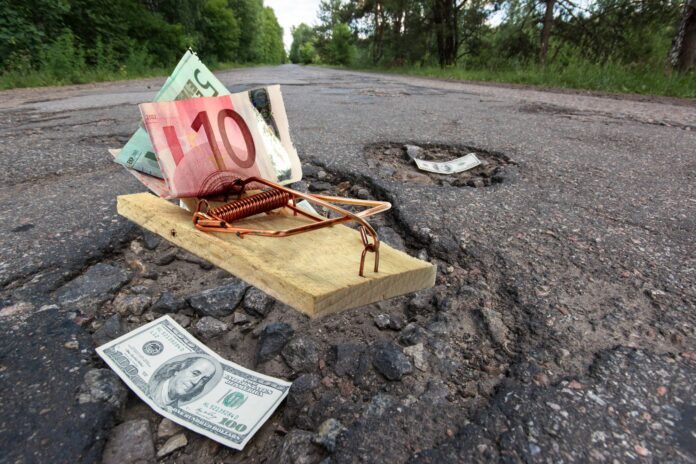Friedrich Merz won’t survive even one term, and France will be the next country to exit the EU—triggering the project’s collapse.
Europe faces a stark choice: continue this war at tremendous cost to avoid revisiting its catastrophic Russia policy of the past three years—or end the war, only to confront Ukraine’s potential EU membership, which in turn would tear the Union apart. No wonder the eurocrats have run out of ideas and keep imposing pointless sanctions just to buy time.
The absurdity of Europe’s energy policy is epitomized by Ursula von der Leyen’s announcement that Nord Stream 1 and 2 are banned “until further notice.” On X, she declared, “Europe is finally leaving Nord Stream 1 and 2 behind”—even though one of the pipelines was already destroyed in a terrorist attack in September 2022. This latest move shows how desperate Europe has become over Russia: no one wants—or is able—to confront it militarily.
Merz’s appointment as German Chancellor has undeniably shifted the EU’s focus to Berlin, where he is positioning himself as the bloc’s hard man. Yet it’s clear Merz won’t last out his full term.
In Germany, anxiety over self-destructive foreign policy guarantees continued growth for the AfD, now Germany’s most popular party according to polls since February’s elections. High energy prices have crippled European industry—an outcome initially blamed on Russia but now shown to result from Brussels’ and Berlin’s own counterproductive policies. Rather than sever energy links, the only solution is to increase global supply—inevitably reigniting debate over Russian pipelines. If that happens, von der Leyen’s credibility and Merz’s tough-guy act will both be in jeopardy.
Every attempt to delay or block a ceasefire in Ukraine is like “pouring ice-cold water on a slippery bathroom floor.” Citizens paying the high prices remember that, before the war, gas was extremely cheap in Europe thanks to abundant global supply—compare today’s American prices. LNG from the U.S., Middle East and Africa—alongside piped gas from Norway and Russia—has driven wholesale gas prices to their highest since 2005.
European LNG imports jumped from 10% to nearly 50% of total supply after the 2014 Crimea crisis, even as Russian pipeline shipments continued. U.S. LNG volumes to Europe tripled between 2021 and 2023 and now account for almost half of Europe’s LNG imports. Cutting off Russian pipelines, however, devastated Europe’s supply situation. European media frequently complain that U.S. LNG is too expensive, contributing to manufacturers’ woes in Germany and elsewhere. Emmanuel Macron once branded the U.S. “unfriendly” for selling pricey LNG.
In 2019 the market was oversupplied, pushing prices down—regardless of whether gas moved by pipeline or ship. Rising U.S. storage drove down global gas prices just as U.S. shale-oil oversupply collapsed oil prices to $26 per barrel in January 2016. That oil crash inflicted enormous pain on Russia’s economy, which relies on oil and gas tax revenues. Russia’s current-account surplus plunged in 2016 to its lowest since 1999—despite record oil and gas production—because global energy prices hit Russia far harder than its exports themselves.
When President Trump urged OPEC to cut oil prices—and thus gas prices—he argued that would hurt Russia more than reducing Russian deliveries. Russia’s monetary policy today, however, is very different from 2016. A weak ruble is welcomed as it cushions falling energy prices and boosts revenues when they rise.
That is why von der Leyen’s second big idea—convincing the G7 to agree to cap oil at $45 instead of $60—also risks failure without U.S. buy-in. And in any case, a G7 deal requires Washington’s consent. Though Trump often pushed for lower prices via increased supply, it’s far from certain he’d support another Russia-focused sanction—especially as his administration now seeks to redefine ties with the Kremlin.
Shutting off Russian pipelines as punishment for Putin’s war backfires: it chokes supply, drives prices up, and hurts Europe far more than Russia. Europe is caught in a perfect storm of bad economics. It continues the war only to delay the inevitable reckoning over its self-destructive Russia agenda. Ending the war would force a painful confrontation with Ukraine’s EU bid—the financial and political cost of accession would threaten the Union’s very foundations.
Countries like France and Poland will block or delay enlargement to protect their agricultural interests. Poland’s newly elected President, Karol Nawrocki, has already declared Ukraine must not join the EU. He is not alone: Hungary’s Viktor Orbán has long warned that admitting Ukraine would be an economic disaster for Europe.
What is unfolding politically in Germany will soon happen in France—legal battles against Marine Le Pen will only accelerate this trend. It’s no longer a question of if the Rassemblement National will take power in Paris, but when. A nationalist France would quickly move to leave the EU, precipitating the project’s collapse.
Only radical reforms—streamlining EU institutions and restoring sovereignty to member states—can avert this outcome. For now, the odds of such changes remain vanishingly small.
Translated and edited by: Dobó

